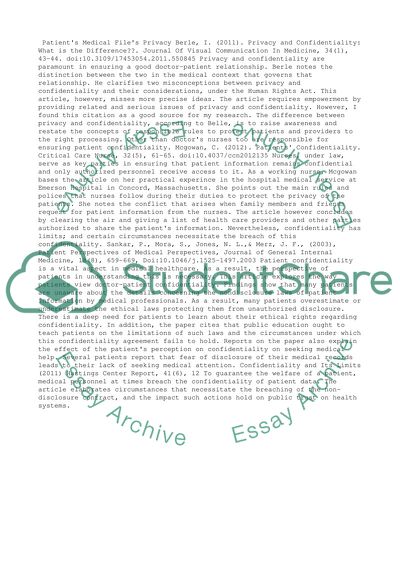Cite this document
(“Patirnt's Privacy & Public trust Essay Example | Topics and Well Written Essays - 1250 words”, n.d.)
Patirnt's Privacy & Public trust Essay Example | Topics and Well Written Essays - 1250 words. Retrieved from https://studentshare.org/management/1478091-patirntyies-privacy-public-trust
Patirnt's Privacy & Public trust Essay Example | Topics and Well Written Essays - 1250 words. Retrieved from https://studentshare.org/management/1478091-patirntyies-privacy-public-trust
(Patirnt'S Privacy & Public Trust Essay Example | Topics and Well Written Essays - 1250 Words)
Patirnt'S Privacy & Public Trust Essay Example | Topics and Well Written Essays - 1250 Words. https://studentshare.org/management/1478091-patirntyies-privacy-public-trust.
Patirnt'S Privacy & Public Trust Essay Example | Topics and Well Written Essays - 1250 Words. https://studentshare.org/management/1478091-patirntyies-privacy-public-trust.
“Patirnt'S Privacy & Public Trust Essay Example | Topics and Well Written Essays - 1250 Words”, n.d. https://studentshare.org/management/1478091-patirntyies-privacy-public-trust.


